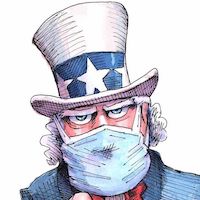Futures Brokers in South Korea
South Korea has emerged as one of the leading economic powerhouses in Asia, and its financial sector has played a crucial role in this growth. With a strong presence of international investors and traders, South Korea has a well-developed futures market. Futures trading involves the buying and selling of contracts for delivery of specific assets at a future date. Here are some of the key features and regulations of futures trading in South Korea, as well as the role of futures brokers in facilitating this activity.
Regulation of Futures Trading in South Korea
The Financial Supervisory Service (FSS) is the regulatory body responsible for overseeing all financial markets in South Korea, including futures trading. The FSS ensures that futures brokers comply with all applicable laws and regulations, and that investor protection is maintained. The FSS also monitors the trading activities on futures exchanges, investigates any irregularities or market abuses, and takes necessary enforcement actions.
Features of Futures Trading in South Korea
- Underlying Assets: South Korea's futures market covers a wide range of underlying assets, including equity indexes, interest rates, currencies, commodities, and energy.
- Leverage: Futures contracts in South Korea offer high leverage, allowing traders to control a large value of assets with a small initial margin deposit.
- Liquidity: The South Korean futures market is highly liquid, with active participation from both domestic and international traders.
- Taxation: Futures trading in South Korea is subject to capital gains tax at the rate of 20% on profits earned from trading activities.
The Role of Futures Brokers in South Korea
Futures brokers act as intermediaries between traders and the futures market. They provide various services, including account opening, trade execution, margin financing, and risk management. Futures brokers also offer trading platforms with advanced analytical tools, market data, and news updates. Traders can choose from a variety of futures brokers in South Korea, each with their own fee structures, product offerings, and customer support options.
Conclusion
Futures trading in South Korea offers a diverse and dynamic market with many opportunities for traders. Proper regulation, strong underlying assets, high leverage, and active participation from both domestic and international traders are some of the key features of this market. Futures brokers in South Korea play a crucial role in facilitating this activity, offering a range of services and support to traders. As always, traders should carefully choose a reliable and trustworthy futures broker, based on their individual needs and preferences.



